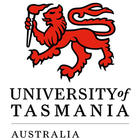Bachelor of Philosophy
Bachelor of Philosophy
The Bachelor of Philosophy is a companion degree for high achieving students who are critical and creative thinkers. People who are motivated to become the thought and action leaders of the future, who want to embrace the world around them, expand their university experience to include multi-disciplinary perspectives, and affect…
Categories
COURSE DESCRIPTION
The Bachelor of Philosophy is a companion degree for high achieving students who are critical and creative thinkers. People who are motivated to become the thought and action leaders of the future, who want to embrace the world around them, expand their university experience to include multi-disciplinary perspectives, and affect positive change wherever their future careers take them.
It’s a degree built of your choosing that you generally study in parallel with your principal degree, with unit options covering research, leadership and service, cultural understanding, and multidisciplinary perspectives. There is a particular focus on transferable, multidisciplinary skills, and cultural engagement, with many units breaking the classroom/exam tradition and providing you the option to undertake projects within local, state, national or even international communities.
As a true high achiever reward program, domestic students who qualify for this program currently also receive a full HECS scholarship, meaning you can get a second degree full of amazing and enriching experiences for no extra cost while you complete your main degree.
Course objectives
This degree is designed to challenge and inspire high achieving students, provide a wealth of multi-disciplinary knowledge and experience, and build a broad set of transferrable soft skills that will give you an edge in your future careers.
While you can choose a range of units to suit your particular tastes and interests, all students who complete this program will graduate with core set of skills, knowledge and experience. You will have a high-level of professional communication skills, multi-disciplinary project planning and management experience, collaboration and negotiation skills across a range of cultures, backgrounds and disciplines, and a global perspective that is invaluable when applying your knowledge to shape the world.
Bachelor of Philosophy graduates are the leaders of tomorrow, and this degree expands your education experience to provide the breadth of skills, knowledge and experience you need to excel in whatever path you pursue.
Course learning outcomes
Upon completion of the Bachelor of Philosophy, graduates should be able to:
Develop, apply and integrate knowledge in a disciplinary, multi-disciplinary and/or professional context.
Communicate professional and disciplinary information and ideas to diverse audiences in effective and appropriate ways.
Conceptualise, negotiate and plan projects or investigations that consider disciplinary or multi-disciplinary perspectives and issues of ethics and integrity.
Conduct and evaluate projects, or investigations, that address questions or issues through application of disciplinary or multi-disciplinary methodologies and consideration of global perspectives.
Develop and demonstrate interpersonal skills to communicate, collaborate and negotiate with people from diverse global cultures and/or backgrounds and/or disciplines.
Work, learn and plan for future learning in both independent and collaborative ways in a range of disciplinary, multi-disciplinary, global and/or professional contexts.
Career outcomes
The Bachelor of Philosophy provides complementary skills, knowledge and experiences that make you an adaptable, motivated and valuable leader in whatever career path(s) you choose.
The breadth and depth of what you can study in the Bachelor of Philosophy will give you the confidence to shape the world whenever you choose to apply yourself. Employers are looking for people who are both technically capable in their profession, and have demonstrated experience in the multi-disciplinary soft skills such as people, time and project management. For future leaders, these skills become even more valuable as you engage in diverse, complex business environments.
REQUIREMENTS
Admission to undergraduate courses at the University of Tasmania requires the completion of qualifications equivalent to a 12th year of education in Australia.
Most of our undergraduate programs have the following English language requirements.
IELTS (Academic) – 6.0 (no individual band less than 5.5)
TOEFL (iBT) 72 (no skill below: Reading 10; Listening 9; Speaking 16; Writing 19)
PTE Academic 50 with no score lower than 42
UTAS Access-English Level 6 – 60% (no individual score less than 55%)
Cambridge CAE (Certificate of Advanced English) – B Grade
Cambridge CPE (Certificate of Proficiency in English) – C Grade
Cambridge BEC (Business English Certificate) Higher – C Grade
EDUCATIONAL INSTITUTION
The University of Tasmania was officially founded on 1st January 1890 and is located at Sandy Bay, Tasmania. In addition to the main campus at Sandy Bay, it also operates out of the Newnham Campus and the Cradle Coast Campus. The most popular courses offered are the environmental studies that include wilderness management, marine sciences and indigenous studies in Tasmanian literature. Other unconventional courses include agriculture development, studies on the community and population and ocean study programs. The university also comprises of a Music Conservatorium, Art school and a School of Clinical studies.




